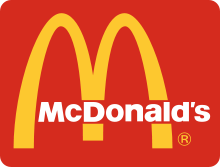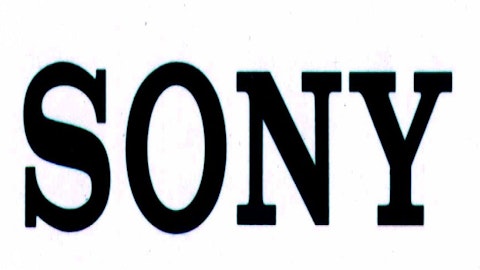I wasn’t necessarily a fan of singer Jack White until I watched an interview of him on Conan O’Brien’s “Serious Jibber-Jabber,” which is streamed online. I previously had no idea his perspectives on life could apply to the success of a company.
Certainly, I always appreciated his music with The White Stripes, though I hadn’t heard much of his solo album “Blunderbluss.” But what struck me about him when listening to the interview was his incredible way of putting success into perspective. Being able to create something out of nothing, he says, is essential for a person’s (or in this case a company’s) success. After all, a person who punches in and out of work, then goes home and sleeps, isn’t going to create an income source. Artists, White says, have “ultra responsibility” through having to create their own income stream. And that is true for entrepreneurs that are behind the world’s largest companies.
Emerging from thin air
Essentially, every company listed on the stock exchanges started from nothing. At a time, for example, McDonald’s Corporation (NYSE:MCD) was a simple barbecue restaurant operated in 1940 by an American couple. Now it is the world’s largest fast food chain.
From its modest beginnings, McDonald’s Corporation (NYSE:MCD) has grown with capitalism. From very humble beginnings, the company has transformed, adjusting to consumer health or environmental trends and capitalizing on globalization. In fact, the firm is partly responsible for leading the way for American companies to open stores throughout the world, paving the way to the global economy. The history of McDonald’s could be a university course on the American dream, and as each chapter unfolds for McDonald’s, so too does a chapter in history. Now that is what I call a company filling a blank canvass.
McDonald’s Corporation (NYSE:MCD) is certainly an example of knowing the right color and the right amount of paint to add. The firm’s history continues today with the company offering customers low-calorie options. And it’s McDonald’s ability to adjust to its customers that has turned it from one small restaurant to now operating in 119 countries and servicing 68 million customers a day. McDonald’s Corporation (NYSE:MCD) knows the art of cashing in, and despite much of the criticism the company has received from environmentalists and health experts, the firm has made something out of nothing, and that’s really an art form. McDonald’s Corporation (NYSE:MCD) has proven it is a company that knows how to recreate itself for the best interest of profits, and that’s reassuring for shareholders.
What other companies are able to fill a blank canvass?
Following in McDonald’s Corporation (NYSE:MCD) footsteps, and having the ingenuity to know the right brush strokes, are two companies showing their continued ability to make money appear out of the air. Facebook Inc (NASDAQ:FB) and Microsoft Corporation (NASDAQ:MSFT) have emerged leaders in technology because of each company’s ability to create.
Microsoft
The company began essentially as a hobby between friends Bill Gates and Paul Allen. The hard work in the early 1970s by these young men initially resulted in simple technology, but breakthroughs for their times. As the years passed, the company came out with new releases until International Business Machines Corp. (NYSE:IBM) in the early 1980s offered Microsoft Corporation (NASDAQ:MSFT) a contract to develop their OS for the firm’s new line of computers. That was a groundbreaking achievement for the pair, and in 1986 the company issued its IPO.
To this day, Microsoft is repeatedly wiping the canvass clean and starting new. The company is still the world’s largest software maker, but now it is moving into other fields, such as its 2011 $8.5 billion acquisition of Skype. Microsoft is also set to release its Xbox One gaming console in November. The staying power of this firm ties closely with its ability to not only adjust to consumer demand, but to also create consumer demand by inventing something out of nothing.
This company also has humble beginnings, and anyone who has seen The Social Network knows why. Harvard University student at the time, Mark Zuckerberg developed the social networking platform along with his roommates. The students worked diligently in 2003 to essentially create something out of nothing. Ten years later, and the company is one of the most used and talked-about firms in the world. As of September 2012, Facebook had over one billion users.
The company is now branching out and recently released a Facebook Inc (NASDAQ:FB) Home interface with the Android smartphone software. The firm is also raking in money from advertisers on the social networking site. This shows that Facebook Inc (NASDAQ:FB), like McDonald’s Corporation (NYSE:MCD) and Microsoft Corporation (NASDAQ:MSFT), is able to identify demand, and what could be in demand. Filling in an empty canvass is recreated by these firms after they have nearly perfected a different segment of their businesses, such as the social networking platform of Facebook. Facebook Home could help the firm create more revenue, due to the software’s ability to essentially create a Facebook smartphone.
A sixth sense
All three companies are leaders in their respective fields, and it took both talent and hard work to be able to build companies that changed the world. What these firms have done in the past directly ties in with what they offer for the future. As long as each company brings in passionate people and continues to fund research and development, the canvass will never be blank for long.
The article McDonald’s Secret Ingredient: Creating Something Out of Nothing originally appeared on Fool.com and is written by Phillip Woolgar.
Phillip Woolgar has no position in any stocks mentioned. The Motley Fool recommends Facebook and McDonald’s. The Motley Fool owns shares of Facebook, McDonald’s, and Microsoft. Phillip is a member of The Motley Fool Blog Network — entries represent the personal opinion of the blogger and are not formally edited.
Copyright © 1995 – 2013 The Motley Fool, LLC. All rights reserved. The Motley Fool has a disclosure policy.






